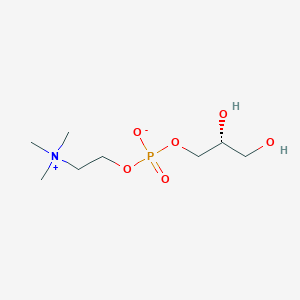-
Categories
-
Pharmaceutical Intermediates
-
Active Pharmaceutical Ingredients
-
Food Additives
- Industrial Coatings
- Agrochemicals
- Dyes and Pigments
- Surfactant
- Flavors and Fragrances
- Chemical Reagents
- Catalyst and Auxiliary
- Natural Products
- Inorganic Chemistry
-
Organic Chemistry
-
Biochemical Engineering
- Analytical Chemistry
- Cosmetic Ingredient
-
Pharmaceutical Intermediates
Promotion
ECHEMI Mall
Wholesale
Weekly Price
Exhibition
News
-
Trade Service
embryonic stem cells are known for their self-renewing dual abilities and the potential for differentiation, both of which require strict regulation. In the process of embryonic stem cell differentiation, various cells develop into specialized cell types, such as skin cells, nerve cells, muscle cells, etc. Although our understanding of embryonic stem cell regulation has been dominated by transcription and exogengenomic models, the role of post-transcription regulation through CYMIC decay has not been fully explored.
Now, a Danish team of researchers has identified a damaging relationship between excess KERP levels regulated by polynucleotide-tail cytosometerial targeting (PAXT) connections and transcription controlled by polynucleotide suppression complex 2 (PRC2). The researchers suggest that excess ICTs hinder pig reproduction and respiratory syndrome 2 by separating them from DNA. Their results emphasize the importance of balancing KERC levels and demonstrate the ability of large-volume ICTs to regulate chromatin-related proteins.Previously, Tolben Heck Jensen's lab had identified and characterized PAXT connections as a bridging complex that targets poly-adenosine (pA-plus) ICOs for decay. After the PAXT component (including zinc finger protein ZFC3H1) is exhausted, the cell stabilizes and accumulates PAA-RNAs. This provides a way to study the general effects of excess phosphoric acid in the nuclea of cells.
Interestingly, using CRISPR/Cas9 to remove the PAXT component ZFC3H1 from mouse embryonic stem cells subsequently disrupted their ability to differentiate. High-volume sequencing analysis showed that Zfc3h1-/- Knock-out (KO) embryonic stem cells showed an increase in differentiation-related ICN expression, which typically silences VCDs. Further studies show that the function and stability of the PRC2 complex are impaired due to the excessive binding of ICTs caused by Zfc3h1-/- KO. In summary, this highlights the importance of maintaining stable nucleoretic transcription groups through the decay of active ICTs to prevent off-target effects resulting from ICT accumulation.
The findings are the result of a collaborative project between Torben Heick Jensen of the Department of Molecular Biology and Genetics at Aolhus University and Kristian Helin of the Centre for Biotechnology Research and Innovation at the University of Copenhagen, funded by the Noor and Nord Stem Cell Biology Foundation, to study the role of ICS regulation in embryonic stem cell biology. The study was carried out mainly by Will Garland of Aolhus University.The study was published in the internationally recognized journal Cell Reports.
(cyy123.com
)







